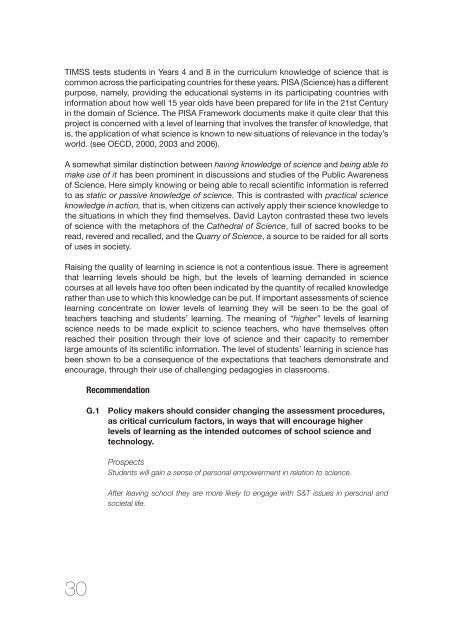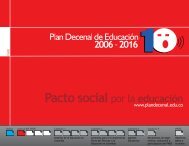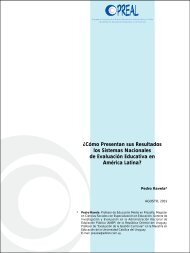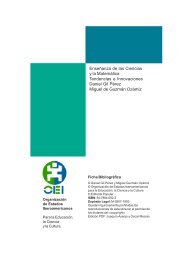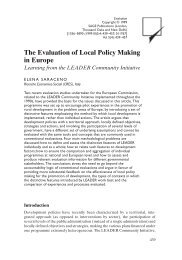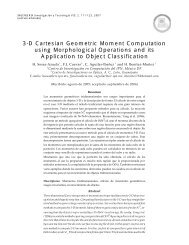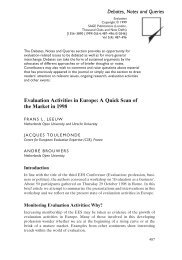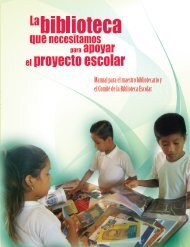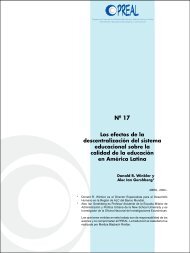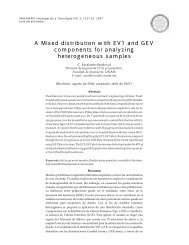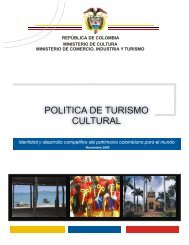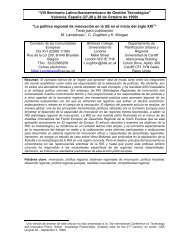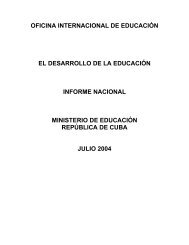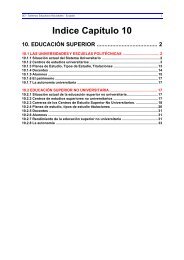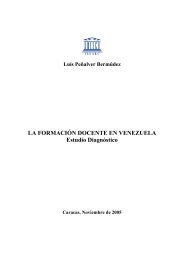Science education policy-making: eleven emerging issues; 2008 - OEI
Science education policy-making: eleven emerging issues; 2008 - OEI
Science education policy-making: eleven emerging issues; 2008 - OEI
Create successful ePaper yourself
Turn your PDF publications into a flip-book with our unique Google optimized e-Paper software.
TIMSS tests students in Years 4 and 8 in the curriculum knowledge of science that is<br />
common across the participating countries for these years. PISA (<strong>Science</strong>) has a different<br />
purpose, namely, providing the <strong>education</strong>al systems in its participating countries with<br />
information about how well 15 year olds have been prepared for life in the 21st Century<br />
in the domain of <strong>Science</strong>. The PISA Framework documents make it quite clear that this<br />
project is concerned with a level of learning that involves the transfer of knowledge, that<br />
is, the application of what science is known to new situations of relevance in the today’s<br />
world. (see OECD, 2000, 2003 and 2006).<br />
A somewhat similar distinction between having knowledge of science and being able to<br />
make use of it has been prominent in discussions and studies of the Public Awareness<br />
of <strong>Science</strong>. Here simply knowing or being able to recall scientific information is referred<br />
to as static or passive knowledge of science. This is contrasted with practical science<br />
knowledge in action, that is, when citizens can actively apply their science knowledge to<br />
the situations in which they find themselves. David Layton contrasted these two levels<br />
of science with the metaphors of the Cathedral of <strong>Science</strong>, full of sacred books to be<br />
read, revered and recalled, and the Quarry of <strong>Science</strong>, a source to be raided for all sorts<br />
of uses in society.<br />
Raising the quality of learning in science is not a contentious issue. There is agreement<br />
that learning levels should be high, but the levels of learning demanded in science<br />
courses at all levels have too often been indicated by the quantity of recalled knowledge<br />
rather than use to which this knowledge can be put. If important assessments of science<br />
learning concentrate on lower levels of learning they will be seen to be the goal of<br />
teachers teaching and students’ learning. The meaning of “higher” levels of learning<br />
science needs to be made explicit to science teachers, who have themselves often<br />
reached their position through their love of science and their capacity to remember<br />
large amounts of its scientific information. The level of students’ learning in science has<br />
been shown to be a consequence of the expectations that teachers demonstrate and<br />
encourage, through their use of challenging pedagogies in classrooms.<br />
Recommendation<br />
G.1 Policy makers should consider changing the assessment procedures,<br />
as critical curriculum factors, in ways that will encourage higher<br />
levels of learning as the intended outcomes of school science and<br />
technology.<br />
Prospects<br />
Students will gain a sense of personal empowerment in relation to science.<br />
After leaving school they are more likely to engage with S&T <strong>issues</strong> in personal and<br />
societal life.<br />
30


